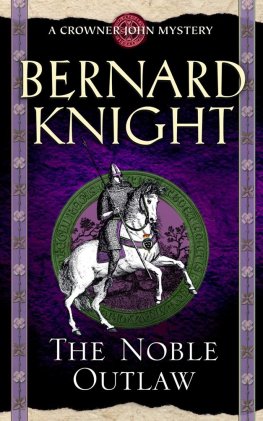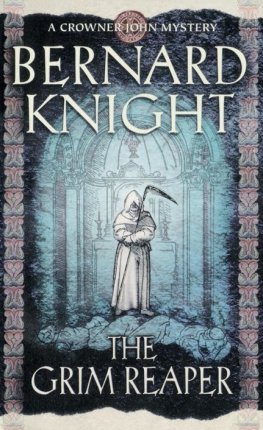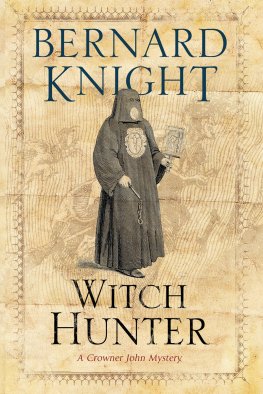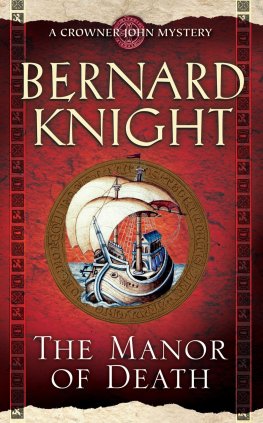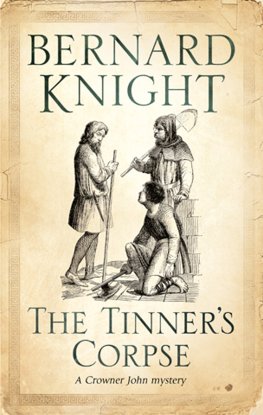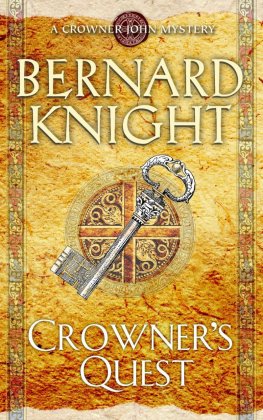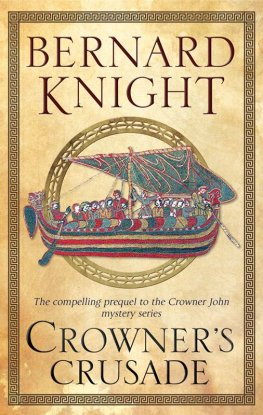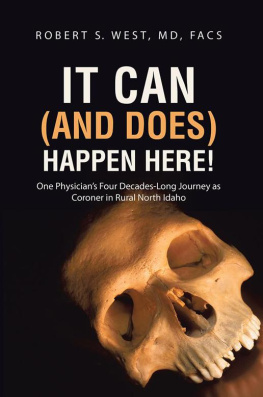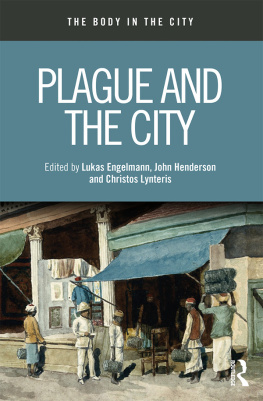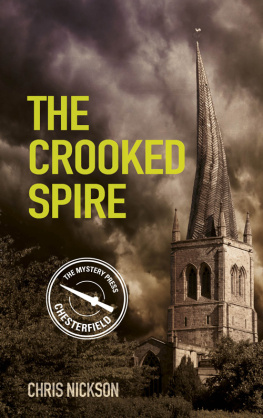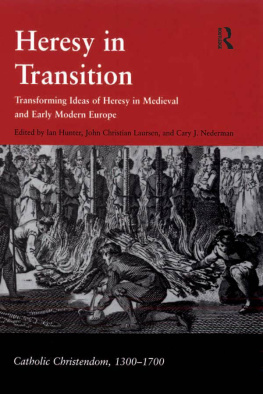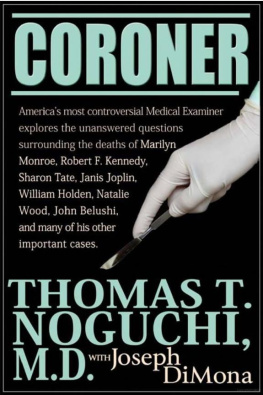Bernard Knight
A PLAGUE OF HERETICS
A Crowner John Mystery
2010

Professor Bernard Knight, CBE, became a Home Office pathologist in 1965 and was appointed Professor of Forensic Pathology, University of Wales College of Medicine, in 1980. During his forty-year career with the Home Office, he performed over 25,000 autopsies and was involved in many high profile cases.
Bernard Knight is the author of twenty-three novels, a biography and numerous popular and academic non-fiction books. A Plague of Heretics is the fourteenth novel in his highly acclaimed Crowner John Series.
You are welcome to visit his website at
www.bernardknight.homestead.com
I would like to thank Dr John Morgan Guy of the University of Wales, Lampeter, for his expert advice about medieval ecclesiastical matters and Alex Wallis for reading a draft and spotting errors.
Also sincere thanks to Kate Lyall Grant, Gillian Holmes, Emma Lowth, Libby Yevtushenko, Florence Partridge and all at Simon and Schuster, as well as my agent and good friend Sara Menguc, for steering Crowner John through fourteen adventures.
As always, heartfelt thanks to my wife Jean for acting as my inhouse constructive critic and eagle-eyed proofreader.
All through history, plagues of various types have been recorded, the most catastrophic being the influenza epidemic of 191819, which killed up to a hundred million people worldwide. Due to lack of accurate diagnosis until modern times, the causes of many plagues are unknown, but the notorious Black Death of 1347, which killed a quarter of the population of Europe, is attributed to bubonic plague carried by rat fleas. However, some epidemics were called the yellow plague due to the obvious jaundice, which is not a feature of bubonic plague. There are several mentions of the yellow plague in medieval Welsh annals, such as the Dylyt Melyn of AD 547, which killed Maelgwn Gwynedd, an early king of North Wales, and caused some Welsh saints to flee to Brittany. Ten years earlier, according to the Annales Cambriae, in the year that Arthur died at the battle of Camlann, there was plague in Britain and Ireland. The cause is uncertain, but mosquito-borne yellow fever is a possibility, known to have occurred in Europe, including England, in the 1700s. Virus hepatitis, malaria or Weils disease, also contracted from rats, are other possibilities.
Heresy may be defined as the expression of any opinion which runs counter to the beliefs of the majority Establishment and is most commonly applied to conflicting religious views. Almost every religion has its heretics and the Christian faith is no exception, with over forty different heresies being listed. Most challenged the entrenched views of the Roman Catholic Church right from its inception, including Arianism, Gnosticism, Catharism and Pelagianism. Further details are given in a note at the end of this book, though no doubt Thomas de Peyne will lecture you en route!
One of the problems in writing a long series, of which this is the fourteenth, is that regular readers will have already become familiar with the background and main characters, perhaps becoming impatient with repeated explanations in each book. However, new readers would wish to be brought up to speed on the general situation and on some of the historical aspects, so a glossary is offered with an explanation of some medieval terms, especially those relating to functions of the coroner, one of the oldest legal offices in England, established in 1194.
Any attempt to use olde worlde dialogue in a historical novel of this period is as inaccurate as it is futile, for in late-twelfth-century Devon most people would have spoken Early Middle English, which would be totally incomprehensible to us today. Many others would have spoken Western Welsh, a Celtic tongue similar to Welsh, Breton and Cornish, while the ruling classes would have spoken Norman-French. The language of the Church and virtually all writing would have been Latin.
The only money in circulation would have been the silver penny, apart from a few foreign gold coins known as bezants. The average wage of a working man was about two pence a day, and coins were cut into halves and quarters for small purchases. A pound was 240 pence and a mark 160 pence, but these were nominal accounting terms, not actual coinage.
All the names of people in this book are authentic for the period, being either real historical characters or taken from the Exeter Crown Pleas Roll of 1238. Unfortunately, though the identities of sheriffs and senior churchmen are known, history has not recorded the names of the Devon coroners until the thirteenth century, so Sir John de Wolfe had to be a product of the authors imagination.
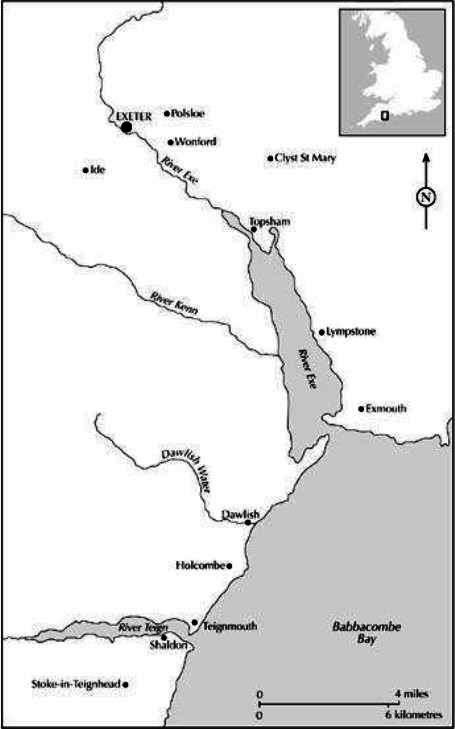
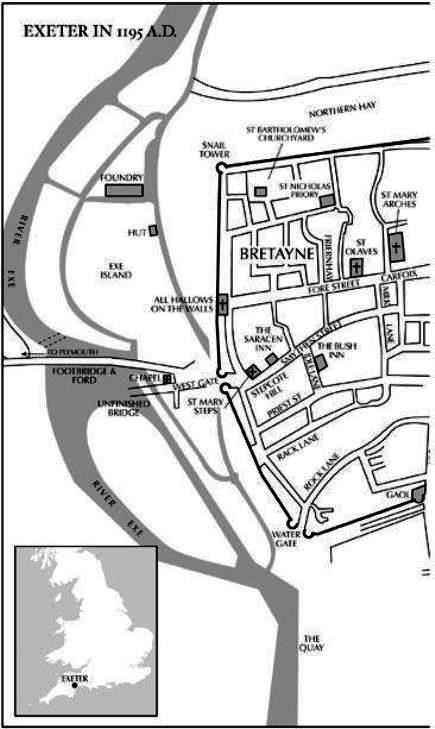
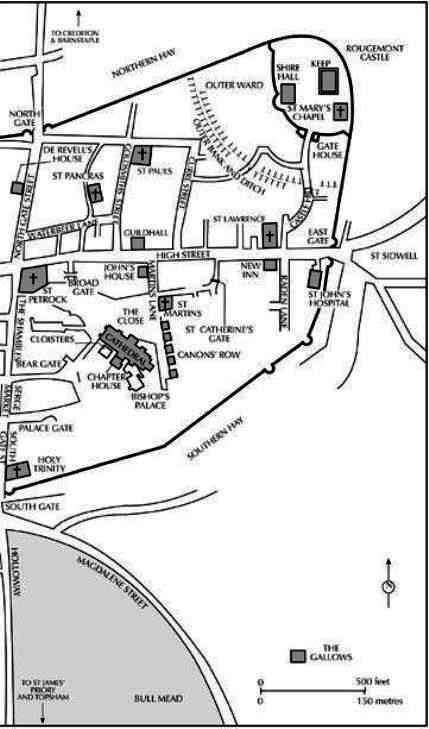
ABJURING THE REALM
A criminal or fugitive gaining sanctuary in a church had forty days grace in which to confess to the coroner and then abjure the realm, that is, leave England, never to return. France was the usual destination, but Wales and Scotland could also be used.
He had to dress in sackcloth and carry a crude wooden cross to a port nominated by the coroner. He had to take the first ship to leave for abroad and if none was available, he had to wade out up to his knees in every tide to show his willingness to leave. Many abjurers absconded en route and became outlaws; others were killed by the angry families of their victims.
ALBIGENSIAN
See Historical Note.
ALE
A weak drink brewed before the advent of hops. The name derived from an ale which was a village celebration, where much drinking took place, often held in the churchyard. The words wassail and bridal derive from this.
ANATHEMA
An extreme form of excommunication used by the Early Christian Church, implying complete banishment from the Church.
APOSTASY
The voluntary rejection or abandonment of a persons religion, who then became an apostate. In strict Islamic law, apostasy is punishable by death.
APOTHECARY
A medieval medicine seller and herbalist, who also offered medical aid and advice, as physicians were very rare outside large cities. Much medical aid was provided by monks and nuns.
ARIANISM
See Historical Note.
BAILEY
Originally the defended area around a castle keep, as in motte and bailey, but later applied to the yard of a dwelling.
BAILIFF
Many different types, but in medieval terms, was the officer of a manor lord responsible for organising all the agricultural work. Other senior servants in towns and other establishments could be termed bailiffs.
BARON
A lord who was a tenant-in-chief , holding his land directly from the king, who owned the whole country. A Baron of the Exchequer came to mean a judge of the royal courts, not connected with the actual Exchequer.
BURGESS
A merchant or property-owner in a town or city, his house and garden being his burgage. The burgesses of a borough elected the council and the portreeves and, later, the mayor.


